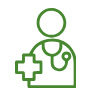Common Use
Actos is used to control high blood sugar in type 2 diabetes (non-insulin-dependent diabetes mellitus). This form of the illness is usually caused by the inability of the body to respond correctly to insulin: either the body does not produce enough insulin, or the cells ignore the insulin. Insulin is the natural hormone that helps transfer sugar out of the blood and into the cells, where it is metabolized into energy.
Actos works by improving the body's response to insulin rather than increasing its insulin output. It also reduces the production of unneeded sugar in the liver. Actos can be used alone or together with insulin injections or other oral diabetes medications such as glipizide, glyburide, or metformin hydrochloride.
Dosage and Direction
Take this medication by mouth, with or without food, usually once a day. Follow all directions of your healthcare advisor as dosage is based on your medical condition, possible reaction to therapy, and can be adjusted if you are treated with other anti-diabetic medications. Take this drug at the same time each day for maximum benefit. Regularly monitor blood glucose levels. It may take up to 2 to 3 months before the full benefit is realized. Take all other medications for diabetes according to the recommendations of your doctor.
Actos Side Effects
- rapid heartbeat,
- sweating,
- confusion,
- blurred vision,
- headache,
- numbness or tingling of the mouth,
- weakness,
- shakiness,
- dizziness,
- tiredness,
- paleness, and sudden hunger.
Missed Dose
If you miss a dose, take it as soon as you remember unless it is almost time for your next dose. Skip the missed dose if it is near the time of the next dose. Do not double the dose to make up for the missed one.
Overdose
Seek emergency medical attention if you think you have taken too much of this medicine. Symptoms of an overdose may include hunger, weakness, dizziness, headache, irritability, drowsiness, fainting, sweating, confusion, tremors, fast heartbeat, seizure (convulsions), or coma.
Contraindications
Inform your healthcare advisor if you are taking any other anti-diabetic medications (insulin, metformin, or sulfonylureas such as glyburide), herbal/natural products (fenugreek, ginseng, gymnema). This medication can decrease the effectiveness of certain contraceptives, which may result in pregnancy. Use an additional form of reliable birth control while using Actos. Do not begin or discontinue any medicine without your doctor's or pharmacist's approval.
Precautions
- Heart problems
- Liver or kidney disease
- Swelling of arms, legs, or feet
- Unusual or allergic reactions to pioglitazone, other medications, foods, dyes, or preservatives
- Pregnant or planning to become pregnant
- Breastfeeding
Storage
Store at room temperature in a tight container, away from moisture and humidity.
Possible Drug Interactions
Pioglitazone can interact with:
- atorvastatin
- oral contraceptives or other hormonal contraceptive methods
- bosentan
- itraconazole
- ketoconazole
- midazolam
- nifedipine
- other diabetes medications, including insulin
- topiramate
Many medications can affect blood sugar levels (increase or decrease), including:
- Alcohol-containing beverages
- ACE inhibitors (commonly used for high blood pressure or heart problems, e.g., captopril, enalapril, lisinopril)
- Antiretroviral protease inhibitors (e.g., indinavir, ritonavir, saquinavir)
- Aspirin and similar drugs
- Baclofen
- Beta-blockers (used for high blood pressure or heart problems, e.g., atenolol, propranolol)
- Certain medications for mental depression or emotional/psychotic disorders
- Chromium
- Cisapride
- Clonidine
- Cyclosporine
- Diazoxide
- Disopyramide
- Adrenaline
- Female hormones like estrogens or progestins, contraceptive pills
- Fibrate drugs for high cholesterol (e.g., fenofibrate, gemfibrozil)
- Glucagon
- Growth hormone (somatropin)
- Guanethidine
- Isoniazid
- Lithium
- Metoclopramide
- Male hormones or anabolic steroids
- Appetite suppressants or weight loss medications
- Allergy, asthma, cold, or cough medications
- Niacin
- Nicotine (including nicotine found in patches and gum)
- Octreotide
- Pentamidine
- Phenytoin
- Quinolone antibiotics (e.g., ciprofloxacin, levofloxacin, ofloxacin)
- Some herbal supplements
- Steroid medications such as prednisone or cortisone
- Sulfonamides (e.g., Azulfidine®, Bactrim®, Gantrisin® Septra®)
- Tacrolimus
- Tegaserod
- Thyroid hormones
- Water pills (diuretics)
Inform your prescribing doctor or healthcare provider of all medications you take, including over-the-counter drugs, nutritional supplements, or herbal products. Also, inform them if you frequently use caffeine or alcohol, smoke, or use illegal drugs, as these may affect how your medication works. Check with your healthcare provider before starting or stopping any of your medications.
Possible Side Effects of Pioglitazone
Side effects that should be reported to your healthcare provider as soon as possible:
- Anxiety or nervousness, confusion, trouble concentrating
- Blurred vision
- Breathing problems, like rapid, deep breathing or trouble breathing with activity
- Cold sweats, increased sweating
- Cold, pale skin
- Dark yellow or brown urine, or yellowing of the eyes or skin
- Diarrhea
- Drowsiness
- Muscle pain
- Nausea, vomiting
- Skin rash or hives
- Slow heart rate
- Tremors or shaking
- Unusual tiredness or weakness
- Swelling of the hands, feet, and/or legs
Side effects that usually do not require medical attention (report to your healthcare provider if they continue or worsen):






